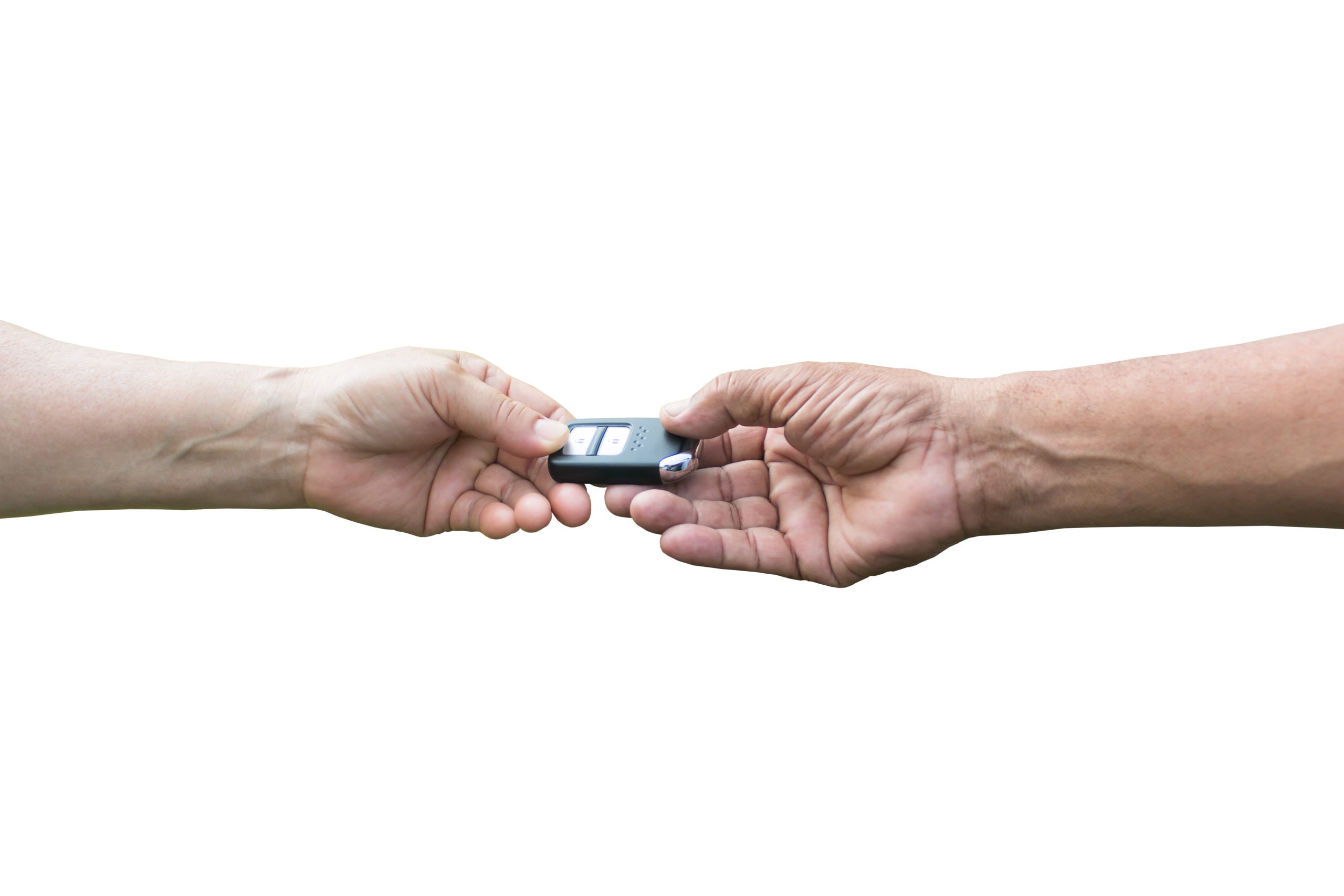Penal Code § 496d PC is the California statute that defines the crime of buying or receiving a stolen vehicle. You commit this offense when you either
- purchase or receive a stolen vehicle while knowing that the vehicle is stolen, or
- sell or withhold a stolen vehicle while knowing that the vehicle is stolen.
Violating this law can lead to a felony conviction punishable by up to three years in state prison.
The language of the code section reads as follows:
496d. (a) Every person who buys or receives any motor vehicle, as defined in Section 415 of the Vehicle Code, any trailer, as defined in Section 630 of the Vehicle Code, any special construction equipment, as defined in Section 565 of the Vehicle Code, or any vessel, as defined in Section 21 of the Harbors and Navigation Code, that has been stolen or that has been obtained in any manner constituting theft or extortion, knowing the property to be stolen or obtained, or who conceals, sells, withholds, or aids in concealing, selling, or withholding any motor vehicle, trailer, special construction equipment, or vessel from the owner, knowing the property to be so stolen or obtained, shall be punished by imprisonment pursuant to subdivision (h) of Section 1170 for 16 months or two or three years or a fine of not more than ten thousand dollars ($10,000), or both, or by imprisonment in a county jail not to exceed one year or a fine of not more than one thousand dollars ($1,000), or both.
(b) For the purposes of this section, the terms “special construction equipment” and “vessel” are limited to motorized vehicles and vessels.
Examples
- taking over the title of a car that a friend stole.
- helping a person steal a boat and then selling it to someone.
- buying a truck at a discounted price because it was stolen from a dealership.
Defenses
Criminal defense lawyers draw upon several legal strategies to help you contest charges under this statute. A few common ones include lawyers showing that you:
- did not know that a vehicle or property was stolen,
- violated the law on accident, and/or
- were arrested after law enforcement conducted an unlawful search and seizure.
Penalties
A violation of California Penal Code Section 496d is a wobbler offense. A prosecutor can charge a wobbler as either a misdemeanor or a felony:
|
Receiving a stolen vehicle charge |
California penalties |
| Misdemeanor | Up to 1 year in jail and/or $1,000 |
| Felony | 16 months, 2 years, or 3 years and/or up to $10,000 |
Our California criminal defense attorneys will explain the following:
- 1. Is it a crime in California to receive a stolen vehicle?
- 2. Are there legal defenses to PC 496d charges?
- 3. What are the penalties?
- 4. Are there related offenses?
- Additional Resources

Penal Code 496d PC makes it a crime to buy or receive a stolen vehicle.
1. Is it a crime in California to receive a stolen vehicle?
A prosecutor must prove the following “elements of the crime” to convict you under California Penal Code 496d successfully:
- you bought or received a motor vehicle, trailer, special construction equipment, or vessel, or
- you concealed, sold, or withheld a motor vehicle, trailer, special construction equipment, or vessel, and
- when you acted, you knew that the motor vehicle, trailer, special construction equipment, or vessel was stolen.1
For purposes of this code section, “special construction equipment” means any vehicle used primarily off the highways for construction purposes and which may not move over the public highways without a permit.2
A “vessel” includes
- ships of all kinds,
- steamboats,
- steamships,
- canal boats,
- barges,
- sailing vessels, and
- every structure adapted to be navigated from place to place for the transportation of merchandise or persons.3
2. Are there legal defenses to PC 496d charges?
Here at Shouse Law Group, we have represented literally thousands of people charged with theft, including receiving a stolen vehicle. In our experience, the following three defenses have proven very effective with prosecutors, judges, and juries.
You did not know the vehicle or property was stolen
Claiming you had no knowledge the vehicle was stolen is our most powerful defense because there is no way for the D.A. to show what was going on in your head definitively.
Furthermore, the burden does not fall on us to show your innocent intent. Instead, the D.A. has the burden to prove beyond a reasonable doubt that you had criminal intent – which is very hard to do since your state of mind is invisible.
If we can persuade the D.A. that they have insufficient evidence to convince a jury you knew the vehicle was stolen, they may be willing to drop the case.4
The incident was an accident
Receiving a stolen vehicle by accident is no crime as long as:
- you had no criminal intent,
- you were not acting with criminal negligence, and
- you were engaged in lawful conduct at the time of the accident.
We see cases all the time where car buyers thought they were doing business with a legitimate seller, but that seller ends up pawning off a stolen car to them without their knowledge. Once prosecutors see what happened was an innocent accident, they may agree to dismiss the charge.
The police conducted an unlawful search and seizure
In California, law enforcement can only search and seize something if they have a warrant or a legal excuse for not having one. It is not uncommon in our experience for police to cut corners and take evidence – including vehicles – in violation of your constitutional rights.
If police may have seized the car in your case by illegal means, we would then ask the judge to suppress (disregard) the car as evidence. If the judge agrees, the D.A. may be then left with too little evidence to prosecute any further.

A violation of this statute can result in a fine and/or jail time.
3. What are the penalties?
A violation of Penal Code 496d is a wobbler. A district attorney can charge a wobbler as either a misdemeanor or a felony.
A misdemeanor conviction is punishable by:
- custody in county jail for up to one year, and/or
- a maximum fine of $1,000.5
A felony conviction is punishable by:
- a state prison term of up to three years, and/or
- a maximum fine of up to $10,000.6
4. Are there related offenses?
There are four crimes related to buying or receiving a stolen vehicle. These are:
- receiving stolen property – PC 496a,
- auto theft with prior convictions – PC 666.5,
- grand theft auto – PC 487d1, and
- joyriding – VC 10851.
Receiving stolen property – PC 496a
Per Penal Code 496a PC, receiving stolen property is the crime where you buy, receive, conceal, sell, or withhold property that you know to be stolen.7
As with a violation of PC 496d, a violation of this code section is a wobbler offense that a prosecutor can file as either a misdemeanor or a felony.
Auto theft with prior convictions – PC 666.5
Per Penal Code 666.5 PC, auto theft with a prior conviction is the sentencing enhancement that increases the penalties if you are convicted of auto theft for a second or subsequent time.
As with charges of buying or receiving stolen property, you can defend against charges of this offense by showing that you were only arrested after law enforcement conducted an unlawful search and seizure.
Grand theft auto – PC 487d1
Under Penal Code 487d1 PC, grand theft auto is the crime where you take someone else’s vehicle, worth $950 or more, without permission and with the intent to deprive the true owner of the vehicle.
Note that grand theft is the unlawful taking of someone else’s money, labor or property valued at $950.00 or greater. The crime is different from petty theft, which is the taking or stealing of someone else’s property when the value of the property is $950.00 or less.
Penalties for California theft crimes typically vary depending on the value of the property that was stolen.
As with violations of PC 496d, violations of PC 487d1 can lead to felony charges punishable by up to three years in state prison.
Joyriding – VC 10851
Under Vehicle Code 10851 VC, joyriding is the crime where you drive or take someone else’s vehicle without that person’s consent.
Unlike crimes under PC 496d, crimes under this statute do not involve stolen vehicles. You commit an offense under VC 10851 simply by taking a person’s car without that party’s consent.
Additional Resources
For more in-depth information, refer to these scholarly articles:
- Automobile Theft – Journal of Criminal Law & Criminology.
- Auto Theft and Its Prevention – Crime and Justice.
- Auto Theft Offender and Offense Characteristics – Criminology.
- Auto Theft and the Role of Big Business – Crime and Social Justice.
- Auto Theft and Restrictive Deterrence – Justice Quarterly.
Legal References:
- California Penal Code 496d PC. See also People v. Wehr (2020) 467 P.3d 168.
- California Vehicle Code 565 VC.
- California Harbor and Navigation Code 21.
- See, for example, People v. Russell (2006) 144 Cal.App.4th 1415.
- California Penal Code 496d PC.
- See same.
- See CALCRIM No. 1750 – Receiving Stolen Property. Judicial Council of California Criminal Jury Instructions (2020 edition).
